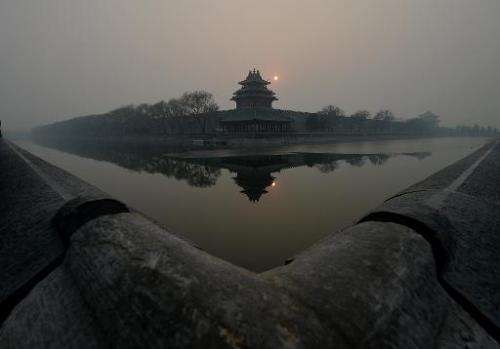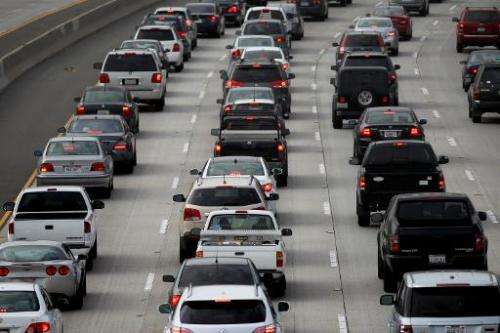Air pollution killed seven million people in 2012, WHO says (Update)

Air pollution by sources from cooking fires to auto fumes has become the globe's worst environmental health problem, contributing to a shocking seven million deaths worldwide, the UN said Tuesday.
"Air pollution, and we're talking about both indoors and outdoors, is now the biggest environmental health problem, and it's affecting everyone, both developed and developing countries," said Maria Neira, the World Health Organization's public and environmental health chief.
Globally, pollution was linked to one death in eight in 2012, new WHO research found.
The biggest pollution-related killers were heart disease, stroke, pulmonary disease and lung cancer.
Experts also cite long-term consequences including birth defects and impaired cognitive functions because poor quality severely affects young children and infants.
The global toll included 4.3 million deaths due to indoor air pollution, chiefly caused by cooking over coal, wood and dung stoves.
Outdoor pollution's impact was estimated at 3.7 million, with sources ranging from coal heating fires to diesel engines.
Many people are exposed to both forms, the WHO said, and due to that overlap the separate tolls attributed to each sources cannot simply be added together, hence the figure of seven million deaths.
The globe's hardest-hit regions were what the WHO labels Southeast Asia, which includes India and Indonesia, and the Western Pacific, ranging from China to the Philippines.
Together, they accounted for 3.3 million deaths related to indoor pollution and 2.6 million for the outdoor form—a total of 5.1 million, taking into account the overlap.
In Africa, the combined death toll was 680,000, while some 400,000 died in the Middle East, 287,000 in low- and middle-income European countries, and 131,000 in Latin America.
High-income nations of Europe saw 295,000 deaths, while 96,000 died in North America, and 68,000 in rich Pacific countries including Australia and Japan.

Like '400 cigarettes an hour'
The figures are "shocking and worrying", Neira told reporters.
The last WHO estimate, in 2008, put the deaths related to outdoor pollution at 1.3 million, and blamed indoor pollution for 1.9 million.
But it is difficult to compare the 2008 and 2012 estimates, Neira said, given that the WHO previously did not take into account the overlap and only assessed urban pollution.
Satellite imagery has made it easier to assess rural pollution, and new knowledge about the health impact of exposure has enabled a better count overall.
"The risks from air pollution are now far greater than previously thought or understood, particularly for heart disease and strokes," said Neira.
"Few risks have a greater impact on global health today than air pollution. The evidence signals the need for concerted action to clean up the air we all breathe."
According to the WHO, some 2.9 billion people in poor nations live in homes where fires are the main method of cooking and heating, and thus breathe in soot.
"Having an open fire in your kitchen is like burning 400 cigarettes an hour," said environmental health expert Kirk Smith, of the University of California at Berkeley, noting that indoor pollution is the largest single health risk for women and girls in India, for example.
'Can't buy bottled air'
Carlos Dora, the WHO's public and environmental health coordinator, said that turned homes into "combustion chambers".
Simple, low-tech measures to stem the impact include so-called "clean cook stoves", as well as improved ventilation, Dora said.
Countries also need to rethink policies, he said, pointing to the impact in the developed world of a shift to cleaner power sources, more efficient management of energy demand, and technical strides in the auto industry.
He also said transport policies needed a shake-up.
With air pollution having sparked a recent scare in France, leading to restrictions on car use and the temporary scrapping of public transport fees in Paris, Dora said such measures could be applied longer term.
"You can't buy clean air in a bottle," he said.
"The air is a shared resource. In order to breathe clean air, we have to have interventions in the areas that pollute air."
In addition to the impact on individuals—500,000 premature deaths a year are thought to be caused by air pollution in China, for example—the economic burden is huge.
A joint report by the World Bank and Chinese authorities released Tuesday showed that pollution-related death and illness cost the country as much as $300 billion a year.
With pollution now a political issue, China's Premier Li Keqiang has vowed to "declare war" on it.
The WHO is later this year due to issue a ranking of the world's 1,600 most polluted cities.
© 2014 AFP


















